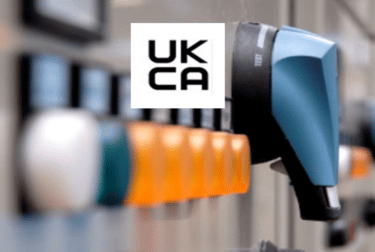Understanding conformity assessment for low-voltage assemblies following the UK’s exit from the EU

As a manufacturer of bespoke electrical equipment, it is paramount to understand and implement a conformity assessment procedure in line with associated regulations and legislation, to ensure the principal elements of safety are met for the related products.
Our technology division’s LV operations manager, Neil Williams, offers some insight into the way things currently work and what is required in a post-brexit landscape.
Product conformity with EU rules
During 2008, the European Commission released a package of updated directives and legislation referred as the ‘New Legislative Framework’(NLF). These are measures introduced to improve market surveillance, strengthen the conditions for placing products on the EU market, and boosting the quality of conformity assessments, clarifying CE marking requirements.
“In providing bespoke solutions of electrical equipment, it is our responsibility to ensure that every solution is primarily safe for its intended use and that it complies with requirements of the product standard, i.e., BS EN 61439-2 Power Switchgear and Controlgear (PSC) Assemblies.”
EU Legislation
Two of the updated EU directives in 2008, are relevant to the manufacture of PSC Assemblies. These are, the Low Voltage Directive (2014/35/EU) and The Electromagnetic Compatibility Directive (2014/30/EU).
‘Harmonisation’ of product standards (e.g. EN 61439-2) with Directives (e.g. the Low-voltage Directive) mean that if compliance with a harmonised standard can be demonstrated, then conformity with the requirements of the directive are presumed.
This is the case for BS EN 61439-2 and the LVD & EMC Directives.
“As part of our responsibilities as an Original Manufacturer of PSC Assemblies in accordance with BS EN 61439-2 (the ‘product standard’) we ensure through our conformity assessment procedure that the requirements of the product standard are met through procedures involving rigorous checks and validation of related technical documentation.”
Once the conformity assessment procedure is complete for each bespoke PSC Assembly, a conformity certificate (i.e. a CE Certificate) can be drawn up, declaring conformity with the EU Directives and referring the particulars for that specific PSC Assembly and its associated technical documentation contained within in a technical library.
“Our technical library contains detailed records of third party certification referring independent laboratory testing, comparisons with tested designs and individual assessments such as technical calculations, all of which verify the design to be in accordance with the product standard.”
Conformity Labelling
Once a PSC Assembly has undergone its conformity assessment, the CE Certificate is drawn up, and a physical label identifying the CE Mark and associated product data is affixed to the manufactured product.
“All PSC Assemblies that we manufacture have a conformity mark applied, allowing full traceability and market surveillance to be carried out, giving confidence to the end-user that all safety and product standard requirements have been met for that particular product”.
UK transition from EU (2021 onwards)
Manufactured in UK provided to EU markets
BSI Group (also known as the British Standards Institution) currently remain as a member of two key European organisations; CEN – a European Committee for standardisation, and CENELEC, – a European Standardisation Organisation. Each of these organisations work together to reflect the economic and social interests of the wider European Economic Area, where CENELEC converts international standards published by the IEC (International Electrotechnical) Commission) into versions suitable for the European Market, notably recognised from the ‘EN’ (referring ‘European Norm’) in the title of a standard’s reference, e.g. the harmonised standard, EN 61439-2.
“Currently an agreement between the U.K. and E.U. permits existing test certification carried out by accredited third parties to remain valid as a reference to demonstrating product compliance. This implies that there is currently no requirement to carry out tests referring existing certification, regardless of whether these took place in the U.K. or E.U. The requirement will remain that a CE Certificate, referring the manufacturers declaration of conformity for supply into the European market, will need to be drawn up and a CE Mark applied to the product.”
Manufactured in UK, provided to UK market (excluding Northern Ireland)
From Jan 1st, 2022, products manufactured in the U.K. and supplied into U.K will require a UKCA (U.K. Conformity Assessed) Certificate to be drawn up and a UKCA Mark applied to the product.
The UKCA Certificate (detailing the manufacturers declaration of conformity) will refer to U.K. legislation, namely The Electrical Equipment (Safety) Regulations 2016 and The Electromagnetic Compatibility Regulations 2016.
“Our processes and documentation have been updated to reflect the new requirements as set out by U.K. Government and are already being implemented along with awareness training and dialogue with our supply-chain, to ensure built-in components will bear the required UKCA marking to ensure the U.K. regulations are being met for our manufactured products as a whole”.
Summary
Whilst there are changes to be made in terms of referencing U.K. legislation and a change in the conformity marking for the U.K. market, the requirements for product conformity effectively remain aligned with the existing E.U. directives, something which we have previously ensured and will continue to ensure is implemented, for all our bespoke PSC Assemblies.




